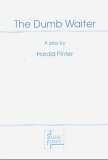Who's singing 'Sunset Song'?
I’m struggling a bit with the narrative technique of Sunset Song – maybe you know of a narrative theory/concept that could accommodate it?
The focalizer seems to shift frequently – we sometimes have insight into the main character, Chris, though sometimes she’s also viewed from what seems to be the perspective of the village people. It is hard to say whether it is a heterodiegetic or homodiegetic narrator (cf. the following extract – the speaker has insight into the community gossip, though there is no indication of that s/he is one of the characters that appear in the story).
While the narrator is usually an “Er (resp. Sie)-Erzähler”, it sometimes shifts to a “self-referring you”. Also, it is neither thoroughly “personal” (although some of the protagonist’s emotions, e.g. during childbirth, seem so genuine that many women still do not believe that a male author could have written it) nor thoroughly “auktorial” (e.g. the narrator is not always reliable and does not have insight in characters other than Chris).
The following extract illustrates what I interpret as a sort of “communal voice”. It sets in after Mr Coulquohoun, a new Minister, has come to the village after the war.
From: Lewis Grassic Gibbon: Sunset Song. Edinburgh: Canongate Classics, 2003.
The focalizer seems to shift frequently – we sometimes have insight into the main character, Chris, though sometimes she’s also viewed from what seems to be the perspective of the village people. It is hard to say whether it is a heterodiegetic or homodiegetic narrator (cf. the following extract – the speaker has insight into the community gossip, though there is no indication of that s/he is one of the characters that appear in the story).
While the narrator is usually an “Er (resp. Sie)-Erzähler”, it sometimes shifts to a “self-referring you”. Also, it is neither thoroughly “personal” (although some of the protagonist’s emotions, e.g. during childbirth, seem so genuine that many women still do not believe that a male author could have written it) nor thoroughly “auktorial” (e.g. the narrator is not always reliable and does not have insight in characters other than Chris).
The following extract illustrates what I interpret as a sort of “communal voice”. It sets in after Mr Coulquohoun, a new Minister, has come to the village after the war.
You couldn’t well call [the new Minister] pro-German, like, for he’d been a plain soldier all through the War. Folk felt clean lost without a bit name to hit at him with, till Ellison said that he was a Bolshevik, one of those awful creatures, coarse tinks, that had made such a spleiter in Russa. They’d shot their king-creature, the Tsar they called him, and they bedded all over the place, folk said, a man would go home and find his wife commandeered any bit night and Lenin and Trotsky lying with her. And Ellison said that the same would come in Kinraddie if Mr Coulquohoun had his way; maybe he was feared for his mistress, was Ellison, though God knows there’d be little danger of her being commandeered, even Lenin and Trotsky would fair be desperate before they would go to that length.
From: Lewis Grassic Gibbon: Sunset Song. Edinburgh: Canongate Classics, 2003.
